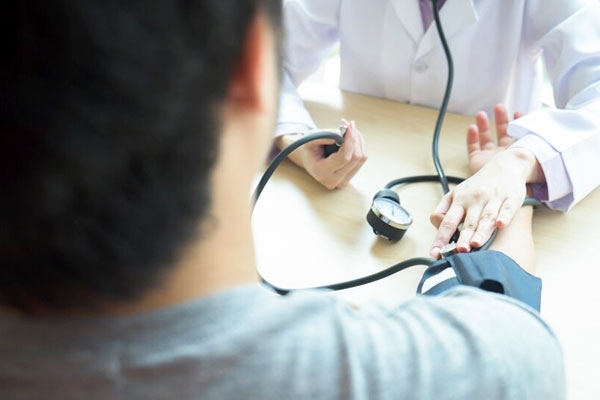
(Image source from: Freepik.com)
Blood pressure is a measure of the force with which blood presses against the walls of blood vessels. The heart pumps blood into blood vessels that carry blood throughout the body. High blood pressure, also called hypertension, means your heart works harder to pump blood throughout your body. This is a dangerous condition and can lead to hardening of the arteries, atherosclerosis, stroke, kidney disease and heart failure. High blood pressure affects nearly half of all adults in the United States. Many people are surprised to hear about high blood pressure because high blood pressure does not usually cause nausea. However, high blood pressure can have a major impact on your health. Therefore, it is important to know what high blood pressure is, what causes it and how to lower it. The blood pressure value is expressed as: 120/80. It’s “120 versus 80.” It is measured in millimeters of mercury, the unit doctors use to express pressure. This is similar to using inches to indicate length. The upper value is called systolic blood pressure, the lower value is called diastolic blood pressure. A systolic reading measures your blood pressure at the exact moment your heart beats. The diastolic value, on the other hand, measures the blood pressure between individual heart beats.
The area is:
Normal: <120 mmHg/<80 mmHg
Rise: 120-129 mmHg/less than 80 mmHg
Stage 1 blood pressure: 130-139 mm Hg / 80-89 mm Hg
Stage 2 hypertension: 140 mm Hg or higher / 90 mm Hg or higher
Blood pressure crisis: > 180 mmHg / > 120 mmHg – see a doctor immediately.
If one of the values is in the high blood pressure range, you have high blood pressure. For example, a person with a blood pressure of 133.79 has a level 1 blood pressure. If your blood pressure is higher than normal, talk to your doctor about ways to lower your blood pressure. If you are in a high blood pressure crisis, call 911. Blood pressure is determined by how much blood your heart pumps and how hard it is for the blood to flow through your arteries. Anything that affects any of these factors, such as dehydration or narrowing of the blood vessels, can affect blood pressure. Several factors can be involved in the development of high blood pressure. Depending on the cause of your high blood pressure, your doctor will determine whether your high blood pressure is primary (or essential) or secondary. It can be of one or both types.
When there is no obvious cause for high blood pressure, it is called primary (or essential) hypertension. In the United States, 19 out of 20 people with high blood pressure have this type of blood pressure. Development often takes years. Essential blood pressure is associated with dietary and lifestyle risk factors. For example, consuming large amounts of salt increases blood pressure. Many people with this disease are sensitive to salt, so even small amounts of food can cause blood pressure to rise.
Other risk factors that may increase your risk of developing essential hypertension include:
- Lack of exercise
- Drinking too much alcohol
- A member of your family has high blood pressure
- Aging (especially after age 65)
- obesity
- diabetes
- Pressure
- Inadequate intake of potassium, calcium and magnesium
- Lack of physical activity
- Chronic alcohol consumption
When the direct cause of high blood pressure can be identified, it is called secondary hypertension. This type of high blood pressure can be caused by various health conditions. It usually occurs more suddenly and more seriously than the initial hypertension. The causes are:
1. Kidney disease. This is the most common cause of secondary hypertension.
2. Adrenal gland disorder. High blood pressure can also be caused by tumors or other abnormalities in the adrenal glands (small structures at the top of the kidneys).
3. Adrenal tumors or diseases can cause the body to release too many hormones that increase blood pressure.
4. Thyroid Disease Too much or too little thyroid hormone can affect blood pressure.
5. Congenital heart defect. Some people are born with heart or vascular problems.
6. Obstructive sleep apnea. This condition leads to breathing problems and lack of oxygen. This can damage your arteries.
7. Oral contraceptives. Birth control pills (especially those containing estrogen) can increase blood pressure.
8. Medicines for cough, cold and pain. These can temporarily increase blood pressure.
9. Certain medications Certain medications can narrow blood vessels and make it harder for the heart to pump blood. Particle for direct object
10. Illegal drugs. Cocaine and amphetamines can increase blood pressure.






















